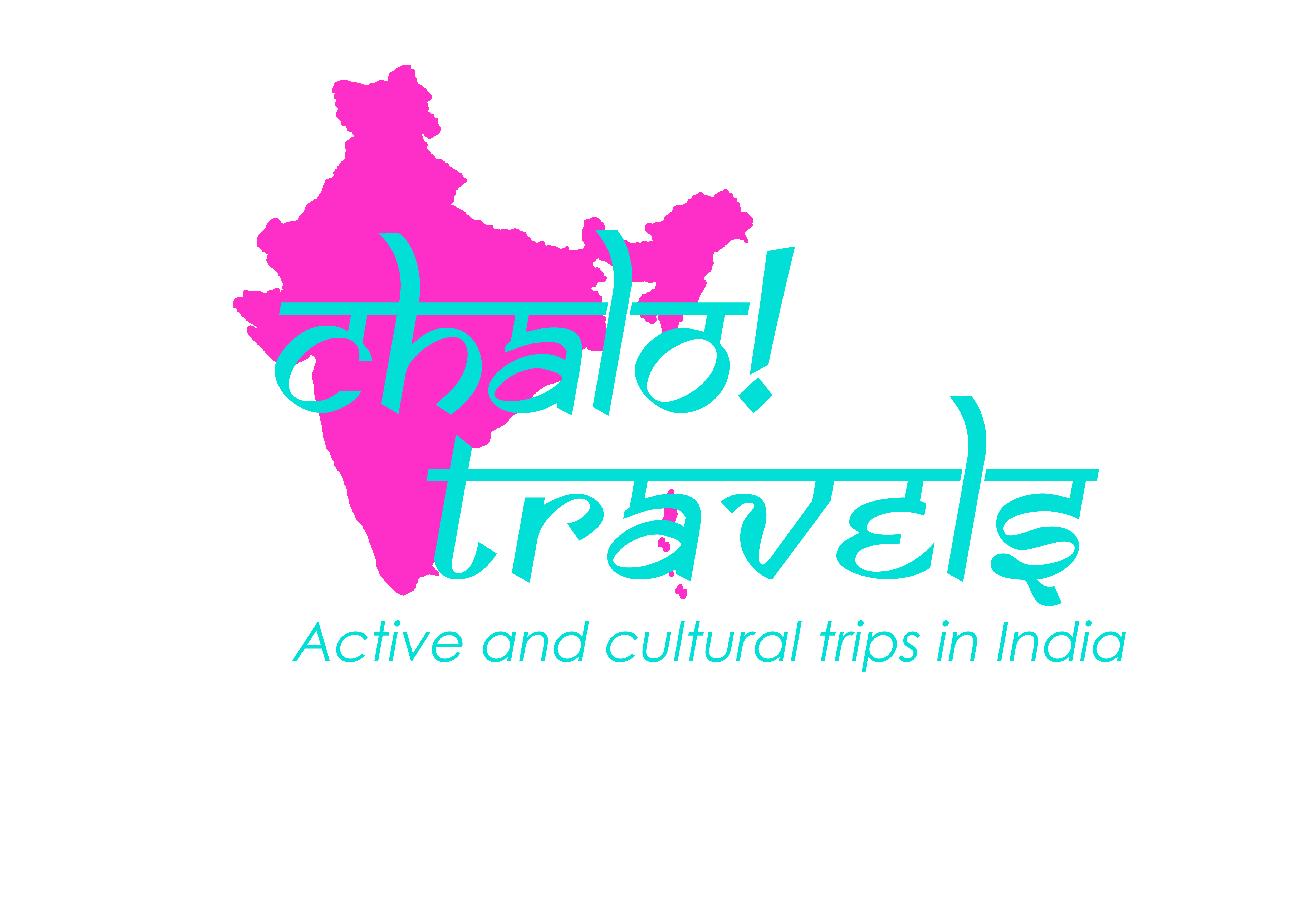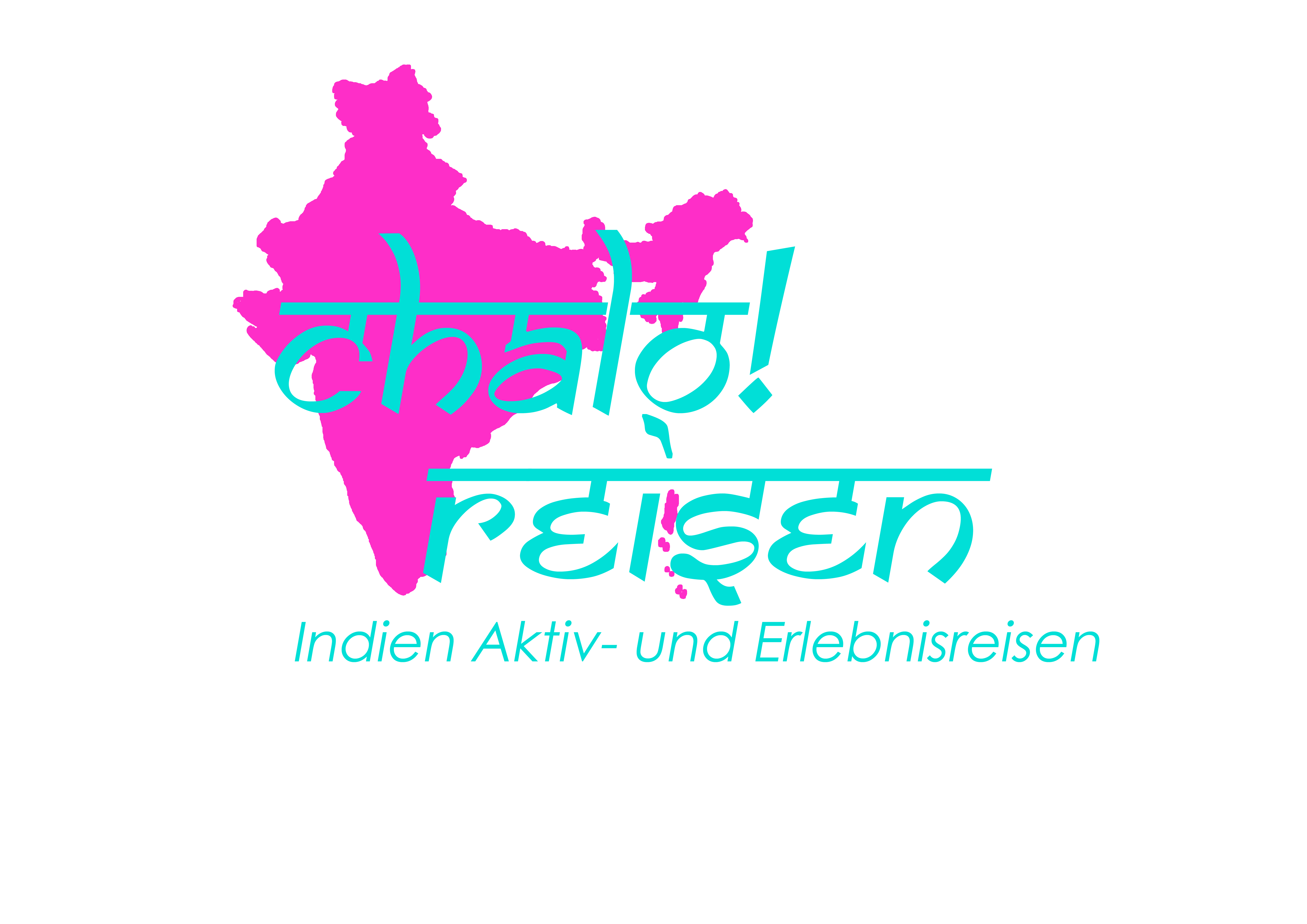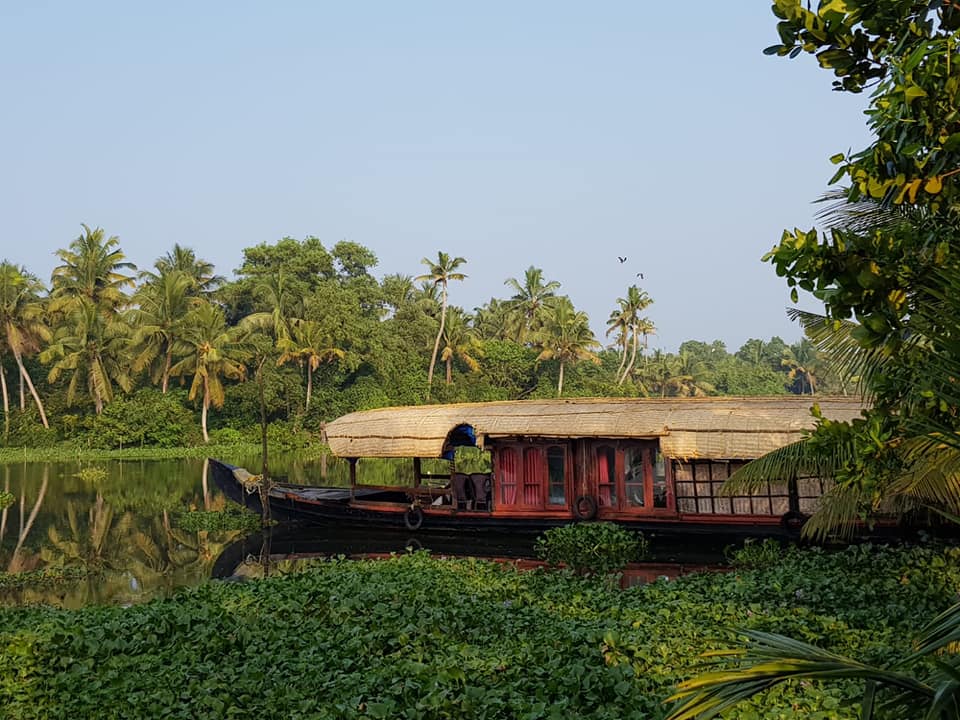March Calendar Sheet No. 3

We sit comfortably in our chairs on the “balcony” of our small floating home for the next 24 hours and enjoy the fresh coconut water while we ship peacefully through the small channels of the backwaters.

We are moved by pure muscle power: our two boatmen powerfully push the three-metre-long wooden poles into the ground and so we drift evenly over the water – without the sound of a loud motor.

The Backwaters are a water system network in Kerala, India. It is made up of natural lakes and rivers, as well as some created canals- like native Spreewald, only that instead of green deciduous forests and meadows, there are palm trees and rice fields that characterize the landscape. On the 900 km long waterways you can boat through the water labyrinth near the coast of the Arabian Sea. Here, fresh water from the rivers of the Western Ghats meet the salt water of the Arabian Sea, creating a very special ecosystem.

People here have completely adapted to the life on the water. Their little cottages are located right next to the small canals, each family has at least one small canoe and from the house there is a direct staircase entrance into the water. We watch men bathe themselves extensively and the women wash the laundry and the dishes. The children either sit on the shore with small homemade fishing rods and wait patiently for a catch, or dive down again and again to the ground for shells.

We observe all that, while we sit on our boat and drive from one channel to the next.
From time to time, small slender boats meet us, which are quickly driven by the men through the canal system. The canoes serve as a means of transport for shopping, visiting neighbours or going to the paddy fields, which are irrigated by the water of the backwaters.

Every year in August, so-called “snake boat” races take place on the largest canals on the occasion of the Onam Festival. The boats with wooden carved snakehead buks are over 50 meters long and offer space for a hundred rowers. In addition to the actual races, there are festive processions with lots of music.
In the larger canals there are even ferries, which, like buses, run very regularly certain routes.

But back to our houseboat: It’s not just people who meet us on our tour. Small duck families cross our path, the little blue kingfisher appears again and again out of the green bush and also one or the other water snake can be seen. Even turtles and otters are supposed to be here.
While we are amazed to welcome the beautiful surroundings, our boatman has disappeared into the small kitchen at the bow of our vehicle and it smells quite wonderful.

The delicious fragrance from the kitchen attracts us and we take a look.
He is just greating fresh coconut, while in one pan mustard seeds and curry leaves are roasted and in the other one small fishes are fried crispy on their skin. “Self-captured” means the chef proudly and we just believe him.
His helper, explains us in a mix of Malayalam (the native language here) and English with the fact that we are very close to a beautiful beach and that we can go swimming until the food is ready.
We are looking forward to a cool bath and agree.

After a few minutes of walk we areby the sea. We jump directly into the water and enjoy swimming in the Arabian Sea. Suddenly our companion calls excitedly and points out to the sea. Astonished, we turn around and just see a tail fin disappearing into the sea. Dolphins! Very excitedly, we now watch as one dolphin after another jumps through the water just a few meters away from us. What an experience!
After the bathing fun, we are really hungry and the subsequent meal of green bean curry, a fruity pineapple dish, the small fish with local rice is quite excellent.

Now we sit comfortably in our chairs again and continue our tour through the ever-closer canal system.

But then curiosity grabs me and I want to try myself to set the big boat in motion. The boatman hands over the stick and explains the movement to me. It is not so easy to hoist the long stick out of the water, but I manage to keep a straight course.

In the late afternoon we reach our starting point again and the boatman is again busy in the kitchen. We grab a small canoe ourselves and try to getro the other side of the channel to by some fruits.
This action turns out to be much more complicated and again and again we move into the bushes near the shore and also start rocking quite violently. But finally we make it back safely with our purchased watermelon.
We take our dinner again on the houseboat. It is now quite peaceful here on the water and you can only hear the waves beating slightly against the boat and hear the quakealing of a few frogs.

Tired, but happy, we go into our bunk and fall asleep while gently rocking on the water.
Unfortunately, the idyllic image of the backwaters is deceptive due to some serious environmental problems.
Both, the locals and tourism contribute to the great destruction of the ecosystem through pollution. Feces and chemicals are fed into the water system, the many motorized houseboats pollute the environment with exhaust gases and the unauthorised drainage of some waters for the extraction of usable land led to a sharp reduction in the backwater area. Crocodiles and many fish species have long since ceased to exist here, but the water hyacinth spreads unhindered.

As guests of the country, we can make a small contribution to the protection of the area by not travelling with the motorized houseboat, but rather choosing an eco houseboat or even doing a kayak or canoe trip!





